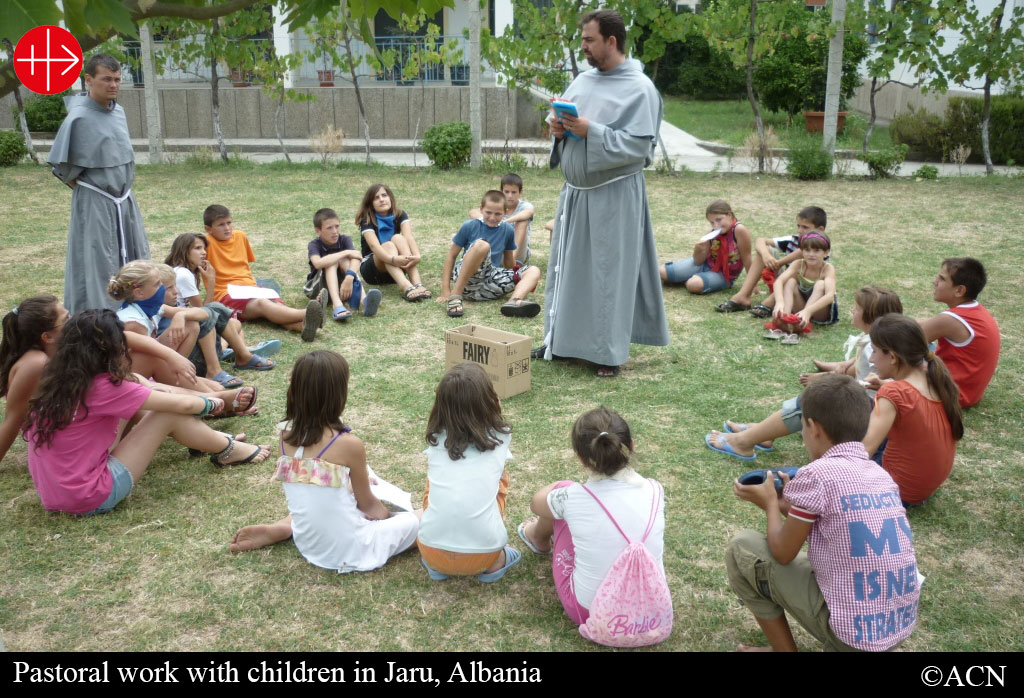EASTERN EUROPE
Church is a ray of hope when state and society offer few prospects
Nowadays, the media pays very little attention to the Catholic church in Eastern Europe. However, in many countries, its situation continues to be difficult, at times oppressive and its commitment is often decisive in enabling coexistence. This came to the fore once more during the 23rd meeting of Catholic aid organisations for Eastern Europe that took place at the main office of the international Catholic pastoral charity Aid to the Church in Need (ACN) near Frankfurt am Main. The meeting primarily focused on reports from south-east Europe, Kazakhstan, Russia, Ukraine as well as the Czech Republic.
The contested eastern parts of Ukraine continue to be the area that is in greatest need, with fatalities still being reported every single day. Remarkably enough, this has strengthened the solidarity of Catholics, Protestants and Orthodox in the troubled regions, as the director of the Subcommittee on Aid to the Church in Central and Eastern Europe of the United States Conference of Catholic Bishops Tetiana Stawnychy described during an informal talk.
The churches in Albania and Kosovo are among the poorest local Catholic churches in Eastern Europe. Catholics in Bosnia and Serbia are, moreover, in a difficult situation: the reality of life as a minority shapes the everyday life of believers. Pastoral offers are especially important for younger parish members, also because few have even begun to process the events that occurred during the Balkan Wars in the 1990s. Next, to the economic problems, these are additional reasons why thousands continue to emigrate from these areas year after year.
Initiatives of the churches are even more desperately needed in those areas where there is little public or state support for the work of reconciliation. At times, they are the only ray of hope in a beleaguered atmosphere. “We must, therefore, continue to strengthen local missionary work, which includes inter-faith dialogue, reconciliation among the peoples and sociocultural education – also to ensure that radical Islam does not spread,” emphasised the spiritual assistant of the international Catholic pastoral charity Aid to the Church in Need, Father Martin Barta, in reference to the ex-Soviet countries in Central Asia.
“The process of shrinking sometimes goes hand and hand with a new quality of ecclesiastical existence,” reported Dr Gerhard Albert. Last year, the Order of St. Gregory the Great was bestowed upon the director of Renovabis by Pope Francis. This also honoured the work of Renovabis for the people in Central, Eastern and South-East Europe.
Securing the material needs of priests and religious in old age is an important topic, particularly in the Balkans, where the Catholic church is in the minority. Representatives from Bosnia and Herzegovina, Kosovo, Serbia, Macedonia, Montenegro and Albania discussed solutions as part of the initiative “Piccolo Gregg” started by bishops from these regions, in order to be able to guarantee priests and religious at least basic health insurance and a minimal pension.
In addition to the above-mentioned aid organisations, the meeting was also attended by participants from the Conference of Catholic Bishops from Italy, Poland and the United States as well as the Porticus Foundation. All hope that a possible visit from the pope to the Baltic states will create additional impetus for the churches in eastern Europe.
Karla Sponar – ACN International





